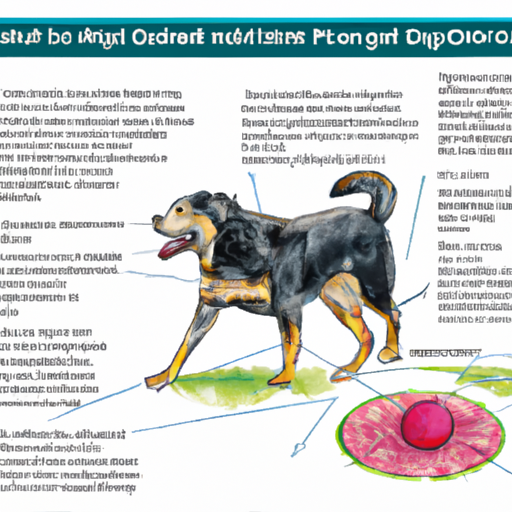As a caregiver, you play an essential role in your dog’s welfare. When your furry friend is diagnosed with mast cell tumors, understanding the treatment options can be a lifeline. This guide explores the various methods to shrink mast cell tumors in dogs and answers some frequently asked questions on the topic.
Understanding Mast Cell Tumors
Mast cell tumors (MCTs) are one of the most common forms of skin cancer in dogs. They originate from mast cells, which are part of the dog’s immune system. MCTs can range from benign (non-cancerous) to malignant (cancerous) and can occur anywhere in the body, although they are most commonly found on the skin.
Treatment Options for Mast Cell Tumors
The treatment for MCTs in dogs is often multi-modal, meaning it involves different methods. These can include:
- Surgery: This is the most common treatment for MCTs. The tumor and some of the surrounding tissue are removed to ensure all cancer cells are eliminated.
- Radiation Therapy: This is often used when surgery isn’t an option or when there’s a high risk the tumor will return.
- Chemotherapy: This is used when the tumor has spread to other parts of the body.
Natural Remedies to Complement Traditional Treatments
While traditional treatments are necessary and effective, there are also natural remedies that can complement these treatments and potentially boost their effectiveness. Among these are:
- Diet: A diet rich in protein and low in carbohydrates can help support your dog’s immune system.
- Supplements: Supplements such as Omega-3 fatty acids, turmeric, and milk thistle can also support the immune system and fight inflammation.
- Acupuncture: This can help manage pain and improve your dog’s overall quality of life.
| Natural Remedy | Benefits |
|---|---|
| Diet | Supports immune system |
| Supplements | Supports immune system, fights inflammation |
| Acupuncture | Manages pain, improves quality of life |
Monitoring Your Dog’s Progress
Regular check-ups are crucial to monitor your dog’s progress. Keep a close eye on your dog’s behavior, appetite, and overall well-being. Reach out to your vet immediately if you notice any changes.
Frequently Asked Questions (FAQs)
Q: How common are mast cell tumors in dogs?
A: They are quite common, accounting for approximately 20% of all skin tumors in dogs.
Q: Can diet and supplements cure my dog’s MCTs?
A: While diet and supplements can support your dog’s overall health and potentially boost the effectiveness of traditional treatments, they are not a cure for MCTs.
Q: How often should I take my dog for check-ups?
A: It depends on your vet’s recommendation, but typically every 3-6 months.
Remember, every dog is unique and what works for one may not work for another. Always consult with your vet before starting any new treatment or supplement regimen. Your love and care, combined with the right treatment plan, can make a huge difference in your dog’s fight against MCTs.



